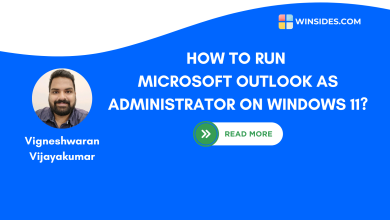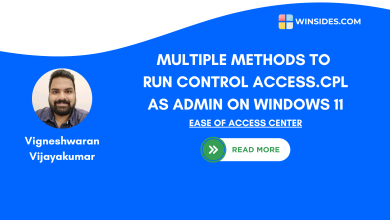4+ Best Ways- Run Task Scheduler as Administrator on Windows 11!
Access System Level Tasks, High Level Tasks, Protected Tasks, etc by running Task Scheduler as Admin
Task Scheduler is one of the cron job scheduler in Windows 11 that executes scripts or pre-defined programs at defined time intervals and also it helps users to perform routine tasks on a chosen computer at specific intervals of time. Whether it’s running a script, performing system maintenance, or setting reminders, Task Scheduler ensures that tasks are executed at the right time without manual intervention. However, some tasks require elevated permissions to run effectively. In such cases, running Task Scheduler as an administrator is essential to avoid permission-related issues. In this tutorial, I will explain you to run Task Scheduler as Administrator on Windows 11 pc.
4+ Ways to Open & Run Task Scheduler as Admin on Windows 11
- Quick Way to open Task Scheduler as Administrator using the Start menu.
- Use Run Command and open Task Scheduler with Elevated Permissions.
- Create New Task to run Task Scheduler with Elevated Privileges using the Task Manager.
- Always open Task Scheduler with Administrative Privileges by creating a Dedicated Desktop Shortcut.
- Open Command Prompt or Windows PowerShell as Administrator & Run Task Scheduler.
IMPORTANT: Running applications as an administrator grants elevated privileges that can significantly affect your system. Please use caution when doing so, as it can lead to Unintended System Modifications, Security Vulnerabilities, Accidental Data Loss, Unauthorized Access, Irreversible Changes, etc.
How to Open Task Scheduler as Administrator on Windows 11 using the Start Menu?
- Go to the Start menu. You can also use the keyboard shortcut WinKey + S. Search for Task Scheduler.
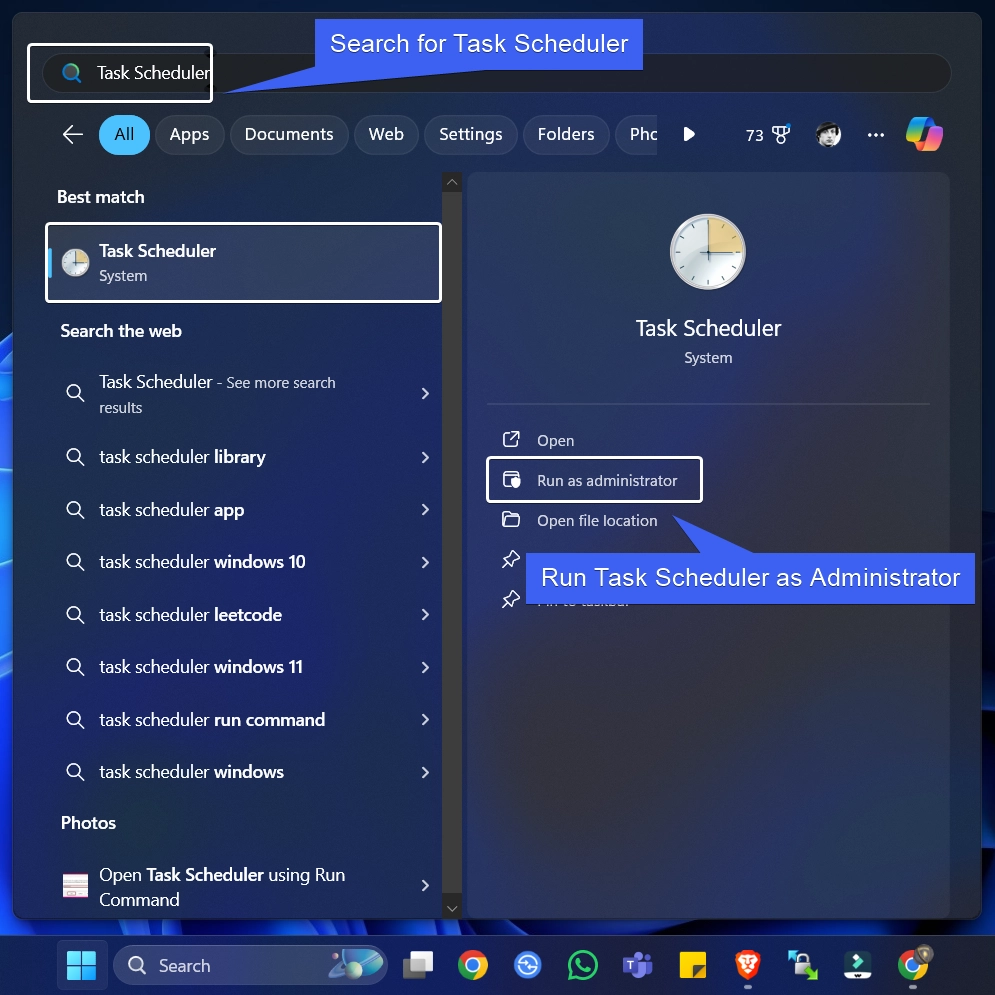
- Once you find the app, right-click on the app and click Run as Administrator.
- The User Account Control will prompt for confirmation and open Task Scheduler as Administrator.
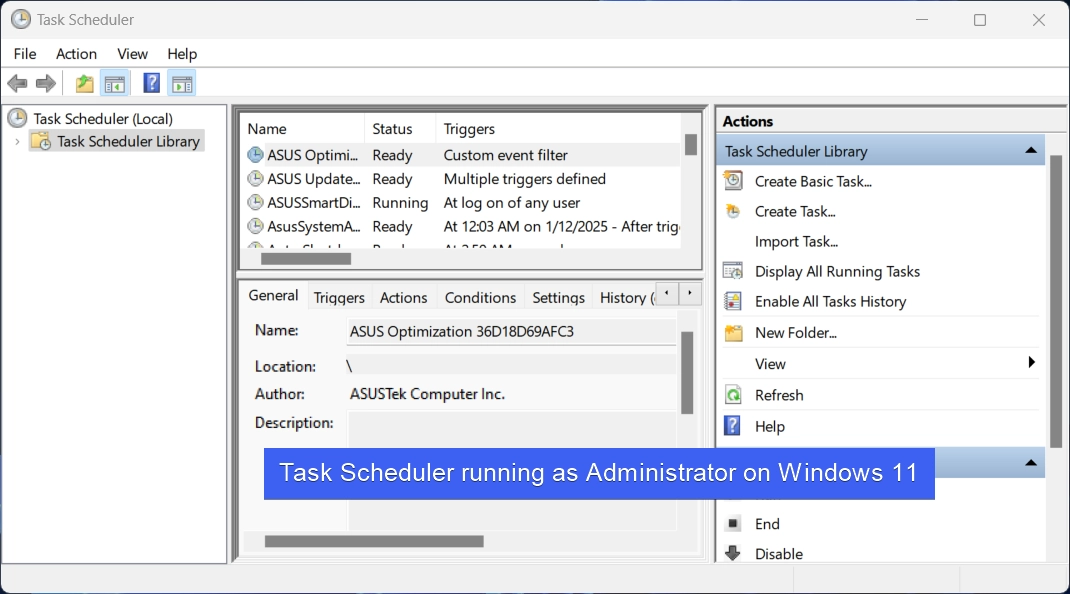
Open the Run Command with Administrative Privileges and Launch Task Scheduler on Windows 11
In this method, we will use the Run Command to open this Application with Elevated Permissions.
- Go to the Run Command. The easy way to access the Run Command is to use the Keyboard Shortcut, WinKey + R.
- Type the command
taskschd.mscand press CTRL + SHIFT + ENTER. This will prompt the system to execute the command with Administrative Privileges.
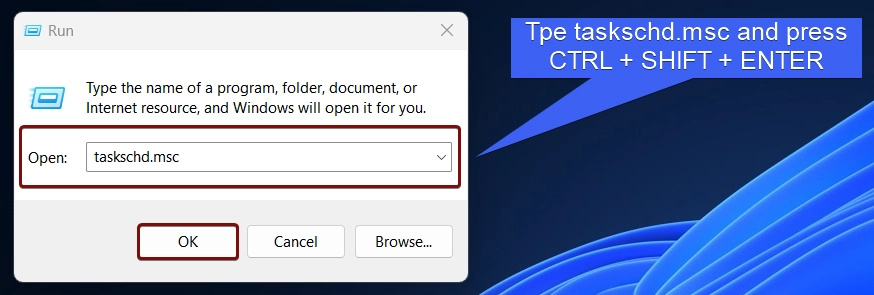
- The system will confirm and open Task Scheduler with Administrative Privileges.
Create a New Task to Open Task Scheduler with Administrative Privileges using the Task Manager
- Right-click on the Taskbar and click Task Manager. You can also use the shortcut CTRL + SHIFT + ESC. This combination will open Task Manager directly.
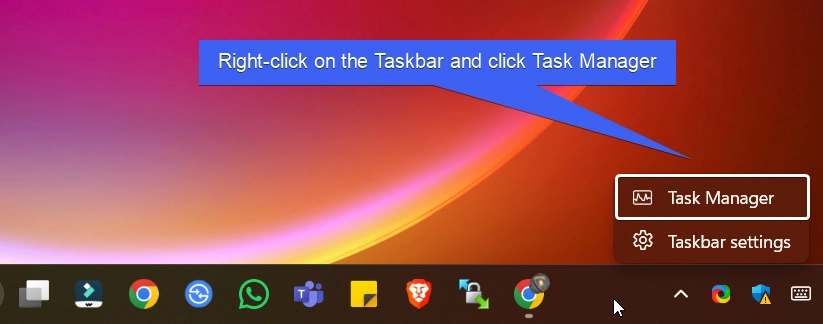
- In the Task Manager, under Processes, click on Run New Task. Create New Task dialog will pop up now.
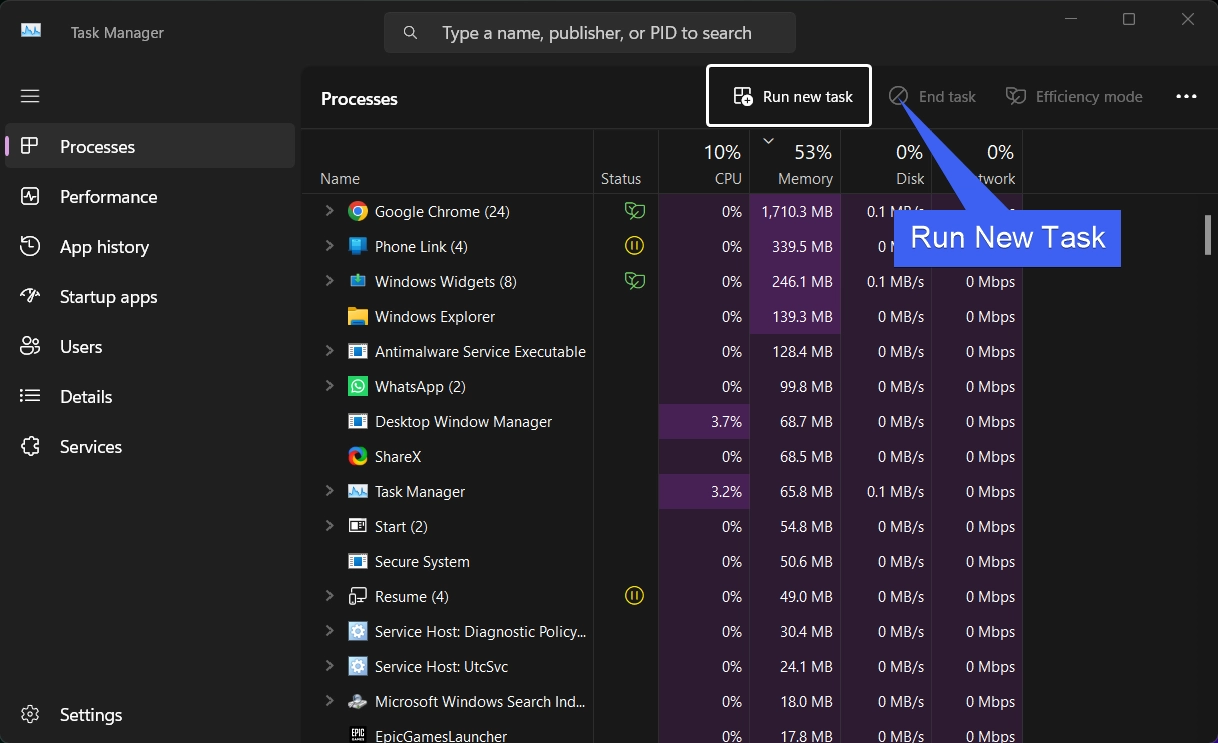
- Type the command
taskschd.mscand enable the checkbox “Create this Task with Administrative Privileges“. Finally, click OK.
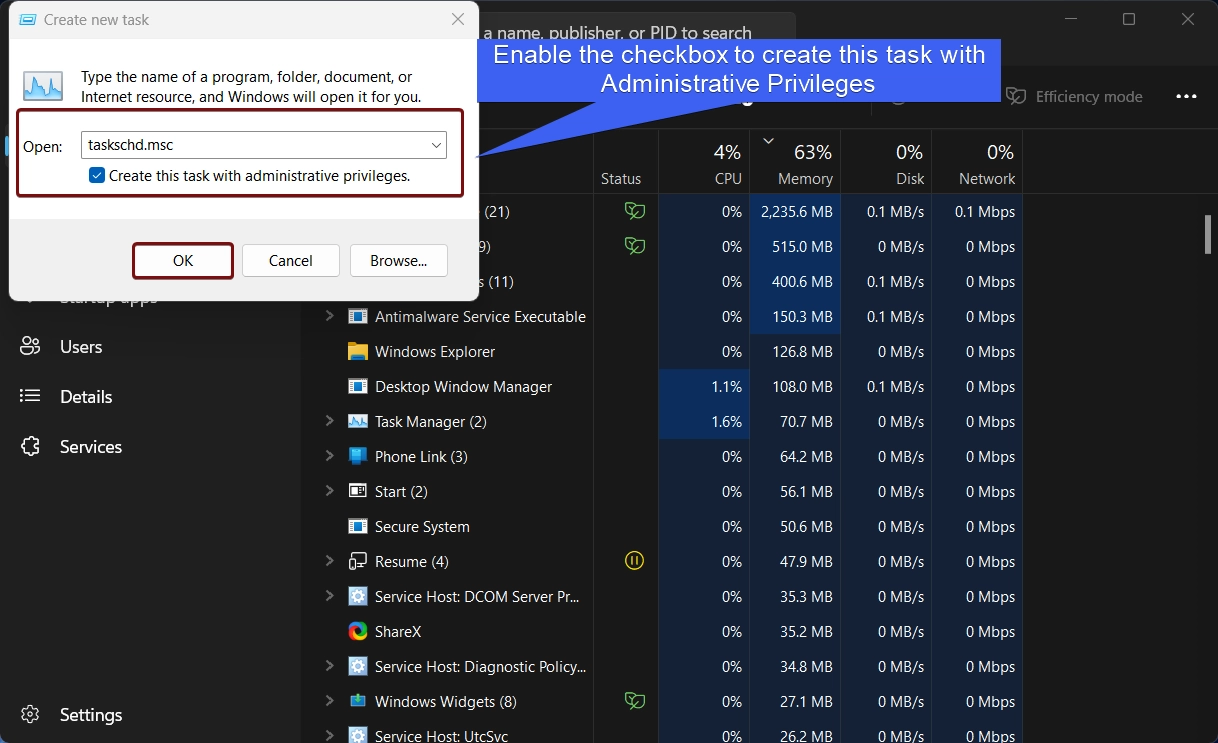
Create a Dedicated Desktop Shortcut to Always Open Task Scheduler with Elevated Privileges on Windows 11
- Right-click on the Empty space of the Desktop, and click New > Shortcut.
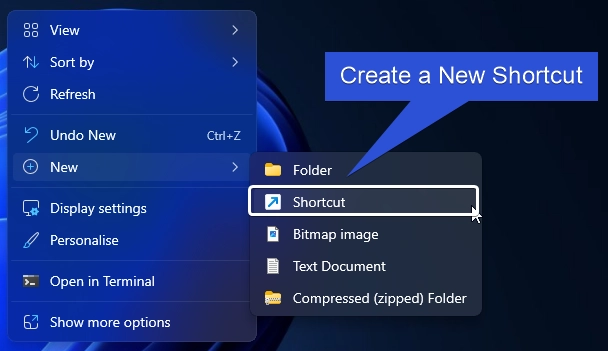
- The Create Shortcut dialog box will open now. In “Type the Location of the Item“, enter the command
C:\WINDOWS\system32\taskschd.mscand click Next.
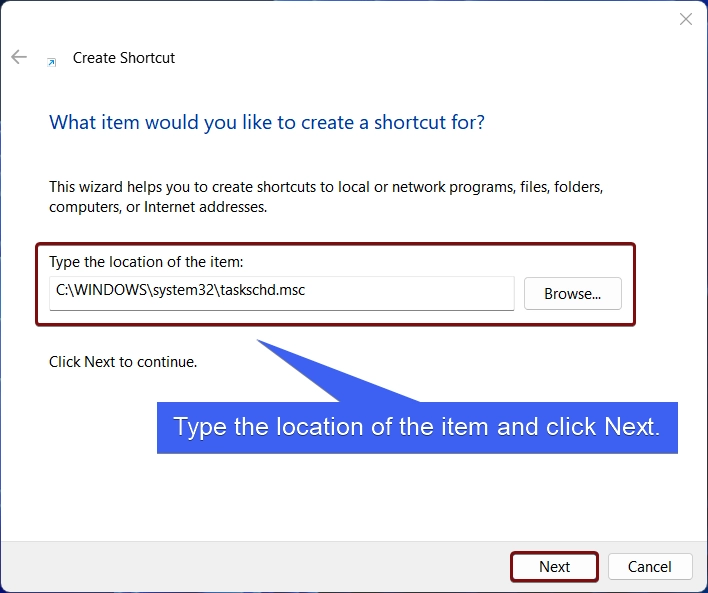
- The system will assign the shortcut name
taskschd. Kindly change it to Task Scheduler. Finally, click Finish.
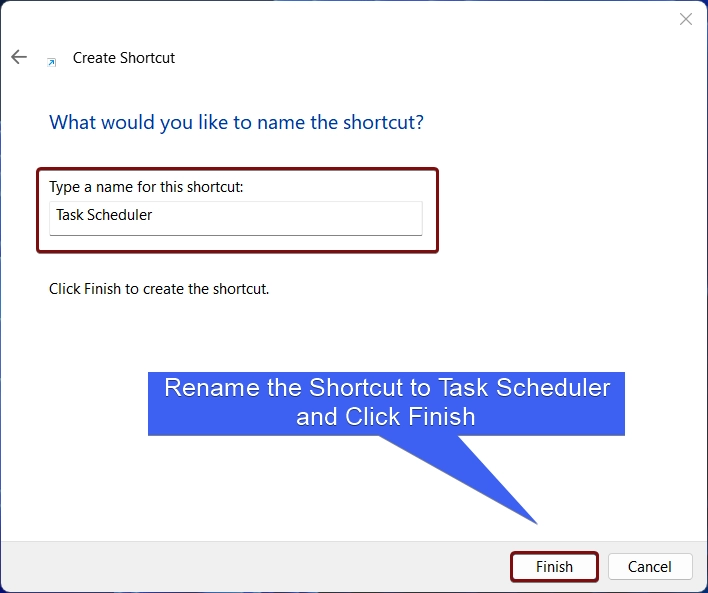
- Task Scheduler Desktop Shortcut will be created.

- Right-click on the Shortcut and click on Properties.
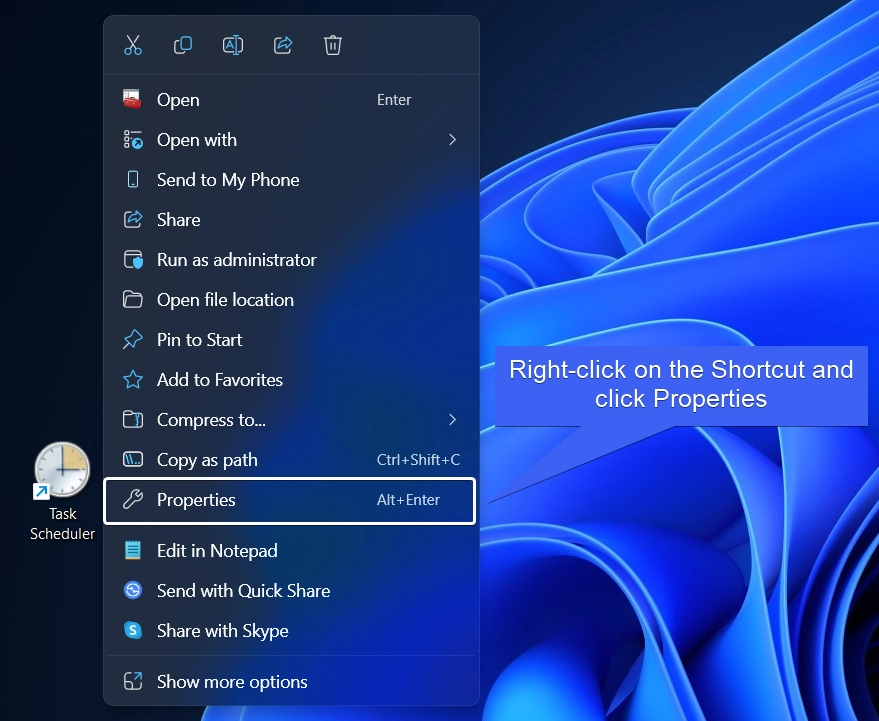
- Task Scheduler Properties will open now. Click Advanced.
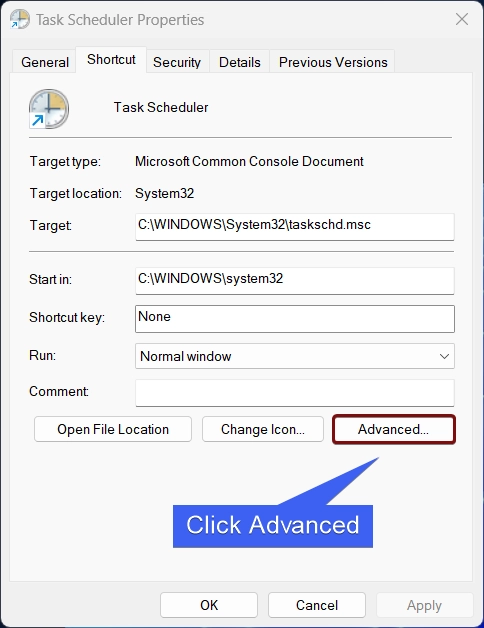
- In Advanced Properties, make sure to enable the checkbox “Run as Administrator“. Finally, click OK, and then Apply.
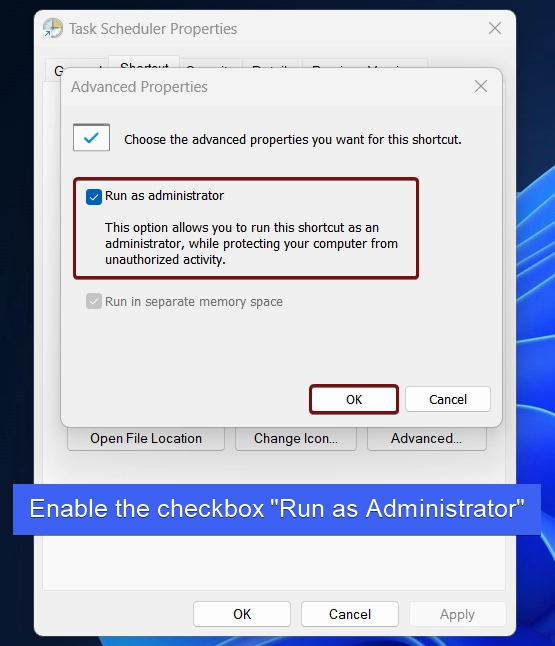
- This option allows you to run this shortcut as an administrator, while protecting your computer from unathorized activity.
Open Command Prompt or Windows PowerShell with High Privileges and run Task Scheduler
In this method, we will open Command Prompt or Windows PowerShell with Administrative Privileges and the execute the Task Scheduler Launch Command. For this article, we will use the Command Prompt, however, the choice is yours.
- Go to the Run Command using the shortcut WinKey + R.
- Type
cmd(For Windows PowerShell, use the commandpowershell), and press CTRL + SHIFT + ENTER.
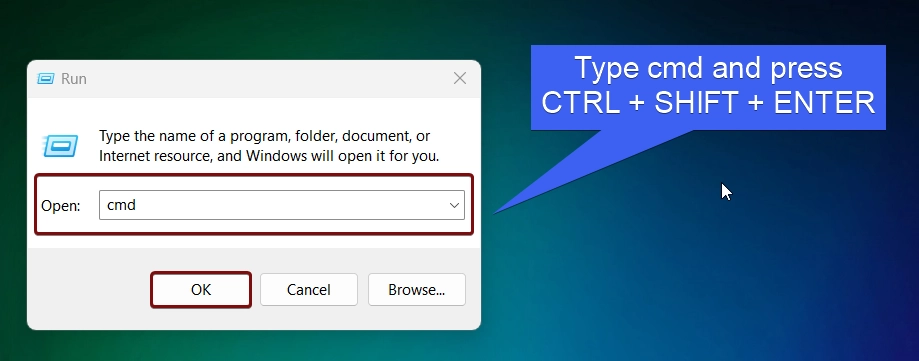
- This will prompt the system to execute this command with Administrative Privileges. In the Command Prompt, execute the following command.
taskschd.msc
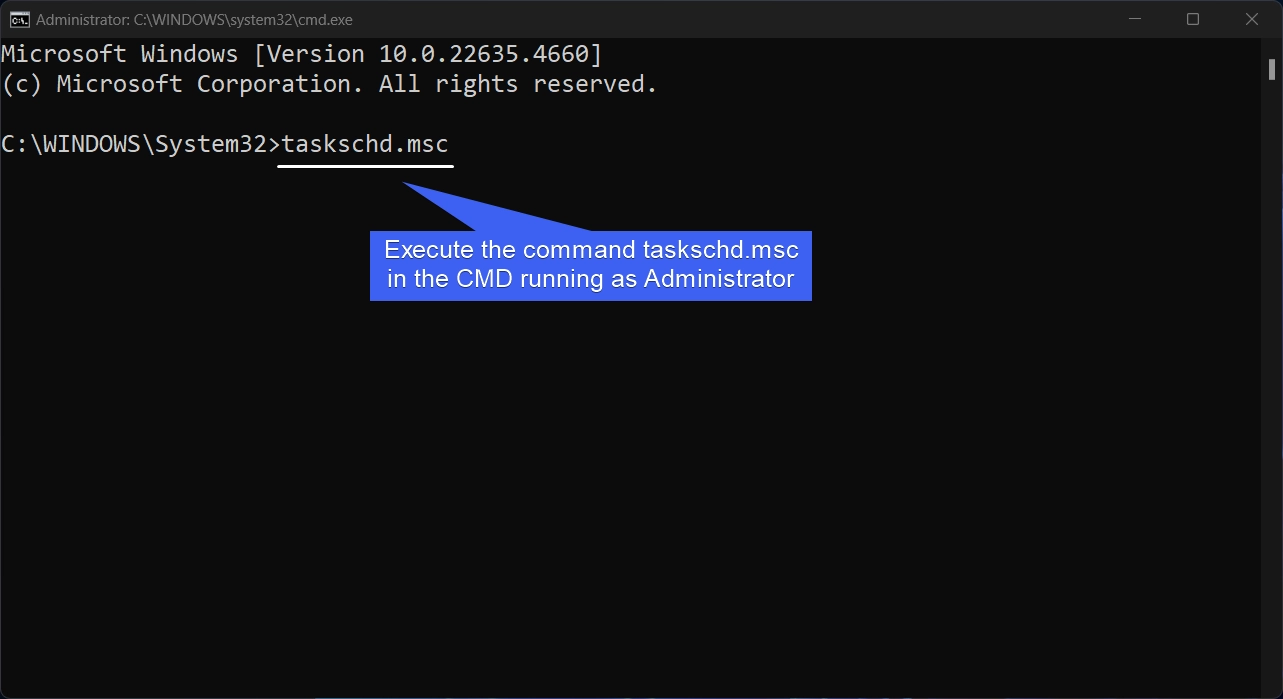
- Now, Task Scheduler will run as Administrator on Windows 11.
Kindly be Cautious while Running an App as Administrator
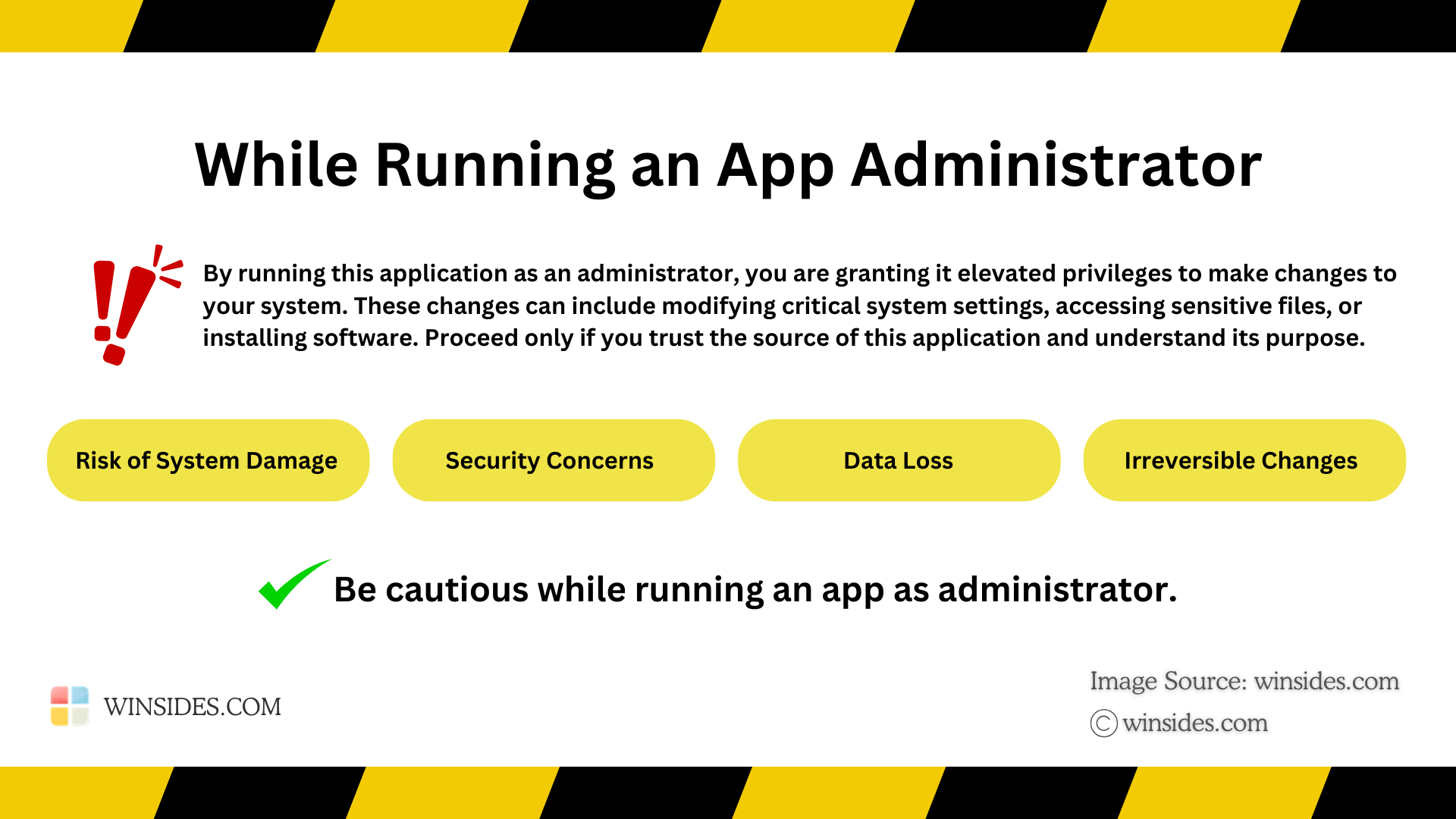
Running Task Scheduler as Administrator on Windows 11 grants it elevated privileges, which can potentially bypass system security restrictions. Please proceed with care and only run trusted applications in this mode. At Winsides.com, we advise our users to use Administrator privileges only when absolutely necessary to perform tasks requiring elevated rights. Misuse of administrative privileges may lead to System Vulnerabilities, Data Loss, System Instability, Security Concerns, Irreversible Changes, etc.
We combine expert insights with user-friendly guidance. We thoroughly research and test everything to give you reliable and simple to understand tech guides. Please take a look at our publishing process to understand why you can trust Winsides.


